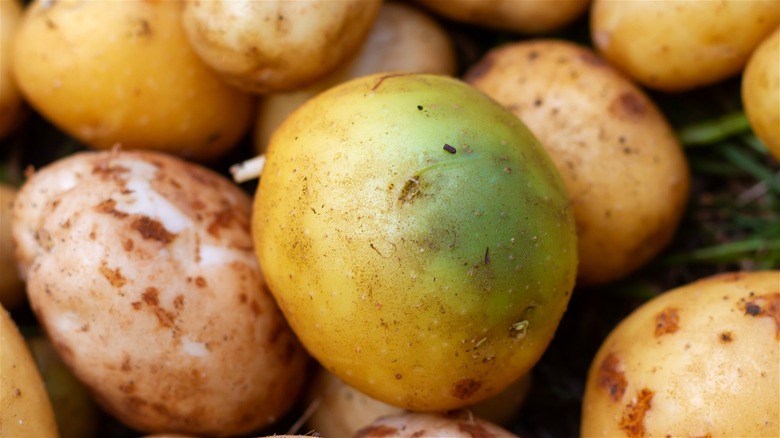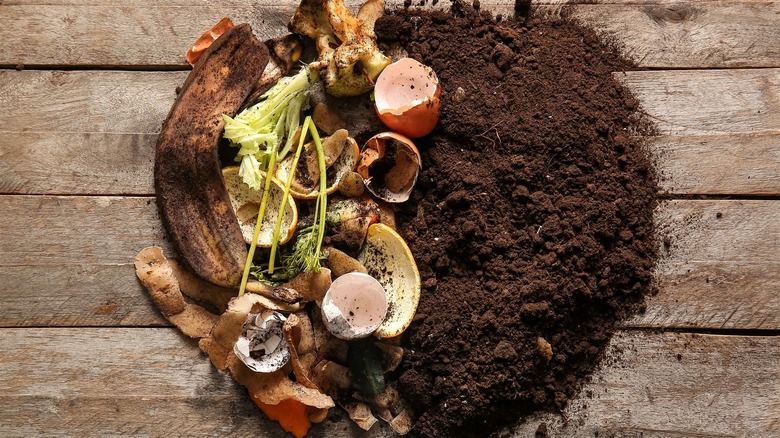What You Should Really Do With A Green Potato
We may receive a commission on purchases made from links.
Mashed, fried, boiled, or grilled, potatoes show up in dishes all over the world. Their versatility allows these spuds to complement nearly any type of cuisine, but they aren't without their liabilities. Like any other form of produce, potatoes will deteriorate over time. However, before that happens a green color may appear on the tuber that not all folks know how to handle.
To find out once and for all if it is okay to eat a green potato, we reached out to Patrick Ochs, the Corporate Executive Chef at INK Entertainment. Being a leading North American entertainment company, serving any fare that makes customers feel less than stellar would be disastrous for the business, so Ochs is passionate about food safety. Some contend that a green potato is safe to eat under certain conditions, but Ochs takes a more hardline approach. "It is not safe to eat green potatoes," he says, "as the green color indicates the presence of solanine, a toxic compound that can cause you to not feel good."
Solanine is a chemical that forms in taters and which — in sufficiently high quantities — can make someone ill with symptoms such as diarrhea, vomiting, fever, and confusion. Although rare, solanine toxicity has even resulted in fatalities. Your green potatoes can still serve a purpose, but ultimately Ochs argues that they shouldn't be put on a plate in any form.
A green potato has one legitimate use
While you should think twice about eating a sprouted potato, it can often be salvaged for a dish. Green potatoes are a different beast, however, as the solanine in the flesh of the tuber cannot be fully cooked out. Some will risk cutting around discolored spots, but Ochs says that "It's best to discard any potato that is extensively green to avoid health risks."
Some DIYers might think utilizing the tainted spud as a seed is a way to make the most out of a bad situation. However, that can also cause problems. When asked about planting discolored taters to limit waste, Ochs said, "It is not recommended to use green potatoes, as it may negatively affect sprouting and plant health."
The only real option left for using a green potato without throwing it in the trash is to toss it into a compost bin. It is best to cut it into small chunks so it decomposes faster if you plan on using this strategy. Yet even when doing this, some sources indicate that solanine might leach into your soil and cause complications for your garden — or could at least harm compost-friendly microbes and worms. The safest action to take is, unfortunately, to throw the tuber in the garbage. If you store your potatoes away from onions in a cool, dry area, you limit the chances of seeing green spots before incorporating your spuds into a tasty dish.

